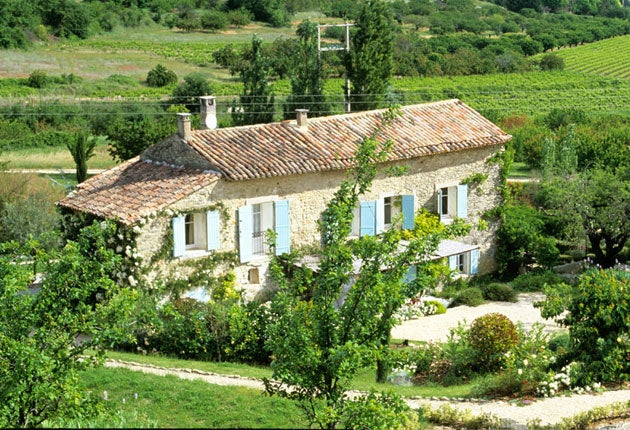Sarkozy's plan to tax holiday homes alarms 'les rosbifs'

Panic and dismay is spreading through "Dordogneshire" and other British holiday haunts in France after the French parliament approved plans for a new tax on second homes.
The tax, due to take effect in January, will apply to second homes owned by non-residents, whether they are French or foreign. Up to 360,000 homes could be affected, about half of which are thought to be owned by British nationals.
But the panic may be exaggerated. The cash demands are likely to be modest. And the new tax could be challenged under European Union law as a "discrimination" against non-residents and a barrier to the free movement of capital.
Under the new law, the taxman would charge 20 per cent of the theoretical annual "rental value" of a second home, whether it is rented out or not. Homes rented out full-time will be exempt, since their owners are already assumed to pay sufficient French tax.
The cash-strapped French government believes it is time for non-resident owners of second homes to start contributing to national services that they use.
The new tax will be paid by foreigners, or non-resident French people, who use their second homes in France only for family holidays – or rent the properties out for a few weeks a year.
Owners would also continue to pay two existing property taxes, which fund local government services. But the amounts charged are likely to be small – perhaps no more than €200 (£176) a year for a house worth €300,000.
Some reports have generated anger and alarm among British owners by implying that the new tax will apply to the "true", or market, rental value. On a villa in the South of France or a large home in the Dordogne, this would mean a tax bill running into thousands of euros.
The 20 per cent annual charge will apply only to a theoretical rental value – or "valeur locative cadastrale" (VLC) – which is fixed by the local tax office. VLC rates fluctuate widely in France, for no obvious reason, but are always a fraction of the "real" rental value of a house.
The VLC on a typical cottage in Normandy worth about €250,000 might be only €600. The annual second home tax would therefore be no more than €120.
The new tax is part of a complex financial package agreed at the weekend by the National Assembly, which will attempt to cut France's budget deficit while reducing the scope of a much-resented annual tax on "wealth" or property. The threshold of the wealth tax, or "impôt sur la fortune", will be lifted from €800,000 to €1.3m. To replace the lost revenue, the government wants non-resident owners of second homes to contribute directly to the national tax base.
Ian Robinson, 58
"I built my own house in Lodève near Montpellier 10 years ago and in that time have already paid significant tax to the government.
"All residents pay a living tax according to the size and type of their home but the amount of tax is loaded by 30 per cent if you're a second homeowner. You also lose the ability to reclaim some of the tax if you're over 60, something French residents are able to do.
"I've read stories about the proposed new tax in the papers and believe it's a discriminatory tax on people who are already paying their way.
"I can fully understand why the French government needs to raise money but, while second homeowners may not be panicking, there is real concern about what these changes would do.
"If I had to start paying €2,000 (£1,762) on top of the €5,000 I already pay in tax, I'd have to grin and bear it but that's €2,000 I wouldn't have to spend elsewhere. I would think twice about eating out in town, I would spend less in the supermarket and would consider cutting back on day trips.
"By taxing people who own second homes, you're discouraging them from contributing to the local economy and if, ultimately, the majority of second homeowners decided to sell up it wouldn't be good for anyone."
Join our commenting forum
Join thought-provoking conversations, follow other Independent readers and see their replies
Comments
Bookmark popover
Removed from bookmarks